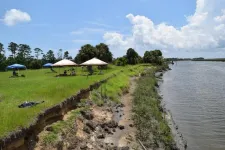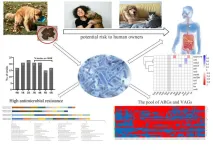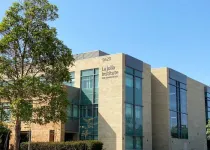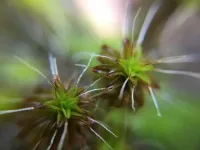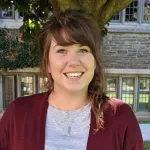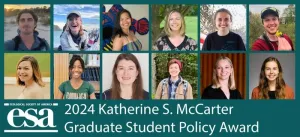(Press-News.org) Thousands of historic and archaeological sites in Georgia are at risk from tropical storm surges, and that number will increase with climate change, according to a study published February 28, 2024 in the open-access journal PLOS ONE by Matthew D. Howland and Victor D. Thompson of Wichita State University and the University of Georgia.
Anthropogenic climate change poses a major risk to coastlines due to rising sea level and increasingly severe tropical storms. This threatens not only living populations but also historic and archaeological sites. Mitigating damage requires accurate assessments of risks, but most predictive models focus on projected sea level rise while most physical observations focus on storm surge events. In this study, Howland and Thompson use the Sea, Lake and Overland Surges from Hurricanes (SLOSH) model developed by the National Weather Service to estimate risks of storm surges along the coast of the US state of Georgia.
The low-lying coastal plain of Georgia hosts thousands of Native American cultural sites, historic colonial sites, and more, representing the physical cultural heritage of the region. This study finds over 4,200 such sites are potentially at risk of inundation from the storm surge of a Category 5 hurricane at present-day sea level. By the year 2100, nearly 5,000 sites could be flooded by severe hurricanes, with over 2,000 threatened by even relatively weak tropical storms. These numbers are more than ten times the estimates from previous models accounting only for sea level rise.
These results underline the importance of accounting for storm surge events along with rising sea level when assessing risks to coastal sites. The authors hope these projections will help cultural heritage managers to facilitate protection and mitigation efforts in Georgia, and they note that a similar modeling approach could be applied to coastal environments around the world.
Matthew D. Howland adds: “This study shows that the archaeological resources of the Georgia coast are at great risk of damage from potential storm surge at any time. Up until now, archaeologists have generally underestimated the threat to coastal cultural heritage since they have been thinking of long term averages of sea level rise rather than the kind of dramatic disaster events that can happen in Georgia and the Atlantic Coast, like Hurricane Michael in 2018.”
Victor D. Thompson adds: “The Georgia coast’s cultural heritage spans millennia, from the earliest Native American villages of Ancestral Muskogean people to its colonial missions and later plantations. These cultural sites are increasingly being impacted by storms and sea level change which threaten the material link to the broader histories of Native peoples, the enslaved, and their place in American history.”
#####
In your coverage please use this URL to provide access to the freely available article in PLOS ONE: https://journals.plos.org/plosone/article?id=10.1371/journal.pone.0297178
Citation: Howland MD, Thompson VD (2024) Modeling the potential impact of storm surge and sea level rise on coastal archaeological heritage: A case study from Georgia. PLoS ONE 19(2): e0297178. https://doi.org/10.1371/journal.pone.0297178
Author Countries: USA
Funding: This work was supported by funding from the Historic Preservation Division of the Georgia Department of Natural Resources. VDT’s work and understanding of the region was supported, in part, through grants associated with the Georgia Coastal Ecosystems LTER project, National Science Foundation (https://beta.nsf.gov/funding) Grants OCE-0620959, OCE-123714). The funders had no role in study design, data collection and analysis, decision to publish, or preparation of the manuscript.
END
Climate change threatens thousands of archaeological sites in coastal Georgia
Modelling predicts combined impacts of sea level rise and severe tropical storms
2024-02-28
ELSE PRESS RELEASES FROM THIS DATE:
Pet dogs with diarrhea may be shedding multi-drug resistant E.coli in 5 in 10 cases, with potential risks to their human owners
2024-02-28
Pet dogs with diarrhea may be shedding multi-drug resistant E.coli in 5 in 10 cases, with potential risks to their human owners
###
Article URL: https://journals.plos.org/plosone/article?id=10.1371/journal.pone.0298053
Article Title: Characteristics of MDR E. coli strains isolated from Pet Dogs with clinic diarrhea: A pool of antibiotic resistance genes and virulence-associated genes
Author Countries: China
Funding: This research was funded by the National Key Research and Development Program of China (2018YFD0500900, ...
Harassment on public transport negatively impacts women's health and welfare, with existing measures being largely ineffective, per systematic review
2024-02-28
Harassment on public transport negatively impacts women's health and welfare, with existing measures being largely ineffective, per systematic review
###
Article URL: https://journals.plos.org/plosone/article?id=10.1371/journal.pone.0296830
Article Title: Invasion of privacy or structural violence? Harassment against women in public transport environments: A systematic review
Author Countries: Spain
Funding: This study has been supported by the research grant ACIF/2020/035 from the "Generalitat Valenciana". The funding entity did not contribute to the study design or data collection, analysis, interpretation, or writing the manuscript. There was no additional ...
How the SARS-CoV-2 virus acquires its spherical shape
2024-02-28
RIVERSIDE, Calif. -- For centuries, coronaviruses have triggered health crises and economic challenges, with SARS-CoV-2, the coronavirus that spreads COVID-19, being a recent example. One small protein in SARS-CoV-2, the Membrane protein, or M protein, is the most abundant and plays a crucial role in how the virus acquires its spherical structure. Nonetheless, this protein’s properties are not well understood.
A research team led by a physicist at the University of California, Riverside, has devised a new method to make large quantities of M protein, and has characterized the protein’s ...
A step toward personalized immunotherapy for all
2024-02-28
LA JOLLA, CA—Most cancers are thought to evade the immune system. These cancers don't carry very many mutations, and they aren’t infiltrated by cancer-fighting immune cells. Scientists call these cancers immunologically "cold."
Now new research suggests such cancers aren't as "cold" as once thought. Researchers from the La Jolla Institute for Immunology (LJI), UC San Diego Moores Cancer Center, and UC San Diego, have found that patients with "cold" tumors actually do make cancer-fighting T cells.
This discovery opens the door to developing vaccines or therapies to increase T cell ...
Drying without dying: Tracing water scarcity coping mechanisms from mosses to flowering plants
2024-02-28
Imagine: You find the dried-up remains of a once green and lush philodendron on your bookshelf and realize you can’t remember the last time you watered your houseplants. You soak the soil with water, hoping you can breathe life back into its desiccated husk, but it is futile. The plant has been too dehydrated for too long, and irreparable damage has been done.
Now imagine that it isn’t your neglected houseplants that have been subjected to an unexpectedly dry growing season, but a field of wheat. With changes in global climate, such things are becoming more common and more of a concern for farmers, consumers, and researchers alike as the threat to food security intensifies.
But ...
Study finds drought fuels invasive species after wildfires
2024-02-28
Irvine, Calif., Feb. 28, 2024 — In a study recently published in the journal Ecology, University of California, Irvine scientists uncover the intricate dance between drought, wildfires and invasive species in Southern California's coastal sage scrub ecosystems.
Titled “Long-term drought promotes invasive species by reducing wildfire severity,” the research, led by Sarah Kimball, Ph.D., director of the Center for Environmental Biology at UCI, sheds light on the critical interplay of these factors and its ...
A safer treatment path for high-risk children to overcome food allergies
2024-02-28
New research from the University of British Columbia reveals a safe path to overcoming food allergies for older children and others who can’t risk consuming allergens orally to build up their resistance.
It’s called sublingual immunotherapy (SLIT), and it involves placing smaller amounts of food allergens under the tongue.
A study conducted by UBC clinical professor and pediatric allergist Dr. Edmond Chan and his team at BC Children’s Hospital Research Institute found SLIT to be as safe and effective for high-risk older children and adolescents ...
Researchers create method to detect cases of anemia in archaeological remains
2024-02-28
Hamilton, ON, Feb. 28, 2024 – Diagnosing anemia in living people is typically a matter of a routine blood test.
Retrospectively diagnosing anemia in people who died decades or even centuries ago is much more challenging since there is no blood left to test.
Anthropologists at McMaster University and the University of Montreal, working with a hematologist colleague, have overcome that obstacle by developing a way to detect anemia through patterns in the structures of bones.
Paleopathologists Megan Brickley, ...
Data-processing tool could enable better early stage cancer detection
2024-02-28
Cancers begin with abnormal changes in individual cells, and the ability to track the accumulation of mutations at the single-cell level can shed new light on the early stages of the disease. Such knowledge could enable more effective early detection and treatment options for patients as well as more accurate predictions of disease progression.
According to a paper in Nature Communications, a team of Rice University researchers led by Luay Nakhleh has developed a platform for integrating DNA and RNA data from single-cell sequencing with greater speed and precision than more recent, state-of-the-art technologies. The method, mapping cross domain ...
ESA 2024 Graduate Student Policy Award Cohort named
2024-02-28
The Ecological Society of America is pleased to announce the recipients of the 2024 Katherine S. McCarter Graduate Student Policy Award (GSPA). Students in the 2024 cohort are engaged in advocacy with an interest in science policy. Awardees will travel to Washington, D.C., for policy, communication and career training followed by meetings with lawmakers on Capitol Hill.
“I am thrilled to welcome this latest cohort of Graduate Student Policy Awardees,” said ESA President Shahid Naeem. “The caliber of this year's awardees, as has been true for awardees in our program since its inception, reflects ...
LAST 30 PRESS RELEASES:
New book captures hidden toll of immigration enforcement on families
New record: Laser cuts bone deeper than before
Heart attack deaths rose between 2011 and 2022 among adults younger than age 55
Will melting glaciers slow climate change? A prevailing theory is on shaky ground
New treatment may dramatically improve survival for those with deadly brain cancer
Here we grow: chondrocytes’ behavior reveals novel targets for bone growth disorders
Leaping puddles create new rules for water physics
Scientists identify key protein that stops malaria parasite growth
Wildfire smoke linked to rise in violent assaults, new 11-year study finds
New technology could use sunlight to break down ‘forever chemicals’
Green hydrogen without forever chemicals and iridium
Billion-DKK grant for research in green transformation of the built environment
For solar power to truly provide affordable energy access, we need to deploy it better
Middle-aged men are most vulnerable to faster aging due to ‘forever chemicals’
Starving cancer: Nutrient deprivation effects on synovial sarcoma
Speaking from the heart: Study identifies key concerns of parenting with an early-onset cardiovascular condition
From the Late Bronze Age to today - Old Irish Goat carries 3,000 years of Irish history
Emerging class of antibiotics to tackle global tuberculosis crisis
Researchers create distortion-resistant energy materials to improve lithium-ion batteries
Scientists create the most detailed molecular map to date of the developing Down syndrome brain
Nutrient uptake gets to the root of roots
Aspirin not a quick fix for preventing bowel cancer
HPV vaccination provides “sustained protection” against cervical cancer
Many post-authorization studies fail to comply with public disclosure rules
GLP-1 drugs combined with healthy lifestyle habits linked with reduced cardiovascular risk among diabetes patients
Solved: New analysis of Apollo Moon samples finally settles debate about lunar magnetic field
University of Birmingham to host national computing center
Play nicely: Children who are not friends connect better through play when given a goal
Surviving the extreme temperatures of the climate crisis calls for a revolution in home and building design
The wild can be ‘death trap’ for rescued animals
[Press-News.org] Climate change threatens thousands of archaeological sites in coastal GeorgiaModelling predicts combined impacts of sea level rise and severe tropical storms
